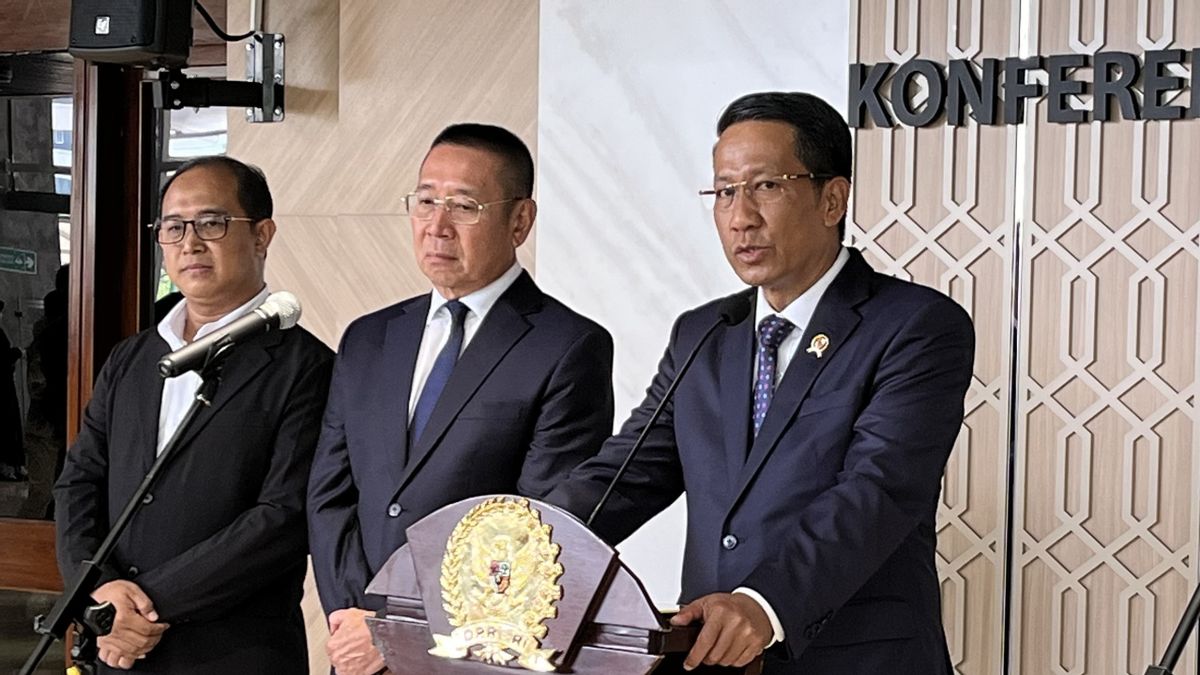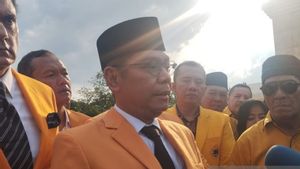JAKARTA - The DPR ratified the Draft Law (RUU) on the Third Amendment to Law Number 13 of 2016 concerning Patents into Law (UU) at the Plenary Meeting.
Minister of Law and Human Rights Supratman Andi Agtas, said the amendment to this law was an important step in strengthening the patent system in Indonesia.
These include increasing protection against inventions in the country, protecting intellectual property, and aligning with international provisions.
Supratman said that the preparation for ratification of the Patent Law had been going on for a long time since 2019.
"Of course we hope that this ratification can answer challenges related to the development of science and encourage patents to become one of the state's acknowledgments to KI (identual wealth, ed)," Supratman said at a press conference, Monday, September 30.
Supratman said this bill was the result of the hard work of the Special Committee (Pansus) and the Working Committee (Panja), which had run a series of intensive meetings to formulate the necessary changes in patent laws.
Several significant changes agreed include adding new definitions related to "Traditional Knowledge" and "Source of Genetic Power", updating provisions related to inventions that cannot be patented, as well as adding a grace period from six months to one year.
One of the other important points is improving the rules regarding licensing and re-examination of patent substantives (re-examination).
Arrangements for patent applications related to the use of genetic resources and traditional knowledge in accordance with the World Intellectual Property Organization (WIPO) Treaty on Genetic Resources Related to Traditional Knowledge (GRTK) which Indonesia adopted at the WIPO General Assembly on July 9, 2024 in Geneva, Switzerland.
"This aims to ensure that patents can be utilized optimally for national interests without ignoring the rights of patent holders," said Supratman.
Supratman also emphasized the importance of revising this law to maintain a balance between protecting intellectual property and national interests.
"We have ensured that this law is in line with the development of industrial needs and research in Indonesia, as well as protecting the rights of the wider community regarding international developments related to intellectual property," said the Gerindra politician.
The chairman of the Special Committee for the Patent Bill, Wihadi Wiyanto, said that the amendment to the Patent Law was carried out to accommodate the needs of the business and technology world in Indonesia.
This change, said Wihadi, is also a form of adjustment to the Job Creation Law which does state convenience in patent registration and value period rather than patents.
"So this will provide more figures on Indonesian investment. This is a step forward for the advancement of Indonesian patents, especially for genetic resources and traditional knowledge," he said.
In addition, continued Wihadi, important changes in the new Patent Law are updates to the formulation regarding inventions that cannot be patented.
For example, if it is a computer program, it is protected by copyright, except for those implemented in patent-protected technology or functions, patent holders related to the implementation of patents are required to report the implementation of the patent in Indonesia no later than the end of the year, the granting of licenses and exceptions to mandatory licenses for certain cases, and the addition of provisions for filing claims of more than ten claims will be subject to additional costs.
"The ratification of changes to this law is expected to increase the application for Indonesian patents and make the patent the backbone of the country's economy," said the chairman of the DPR Baleg.
The English, Chinese, Japanese, Arabic, and French versions are automatically generated by the AI. So there may still be inaccuracies in translating, please always see Indonesian as our main language. (system supported by DigitalSiber.id)













